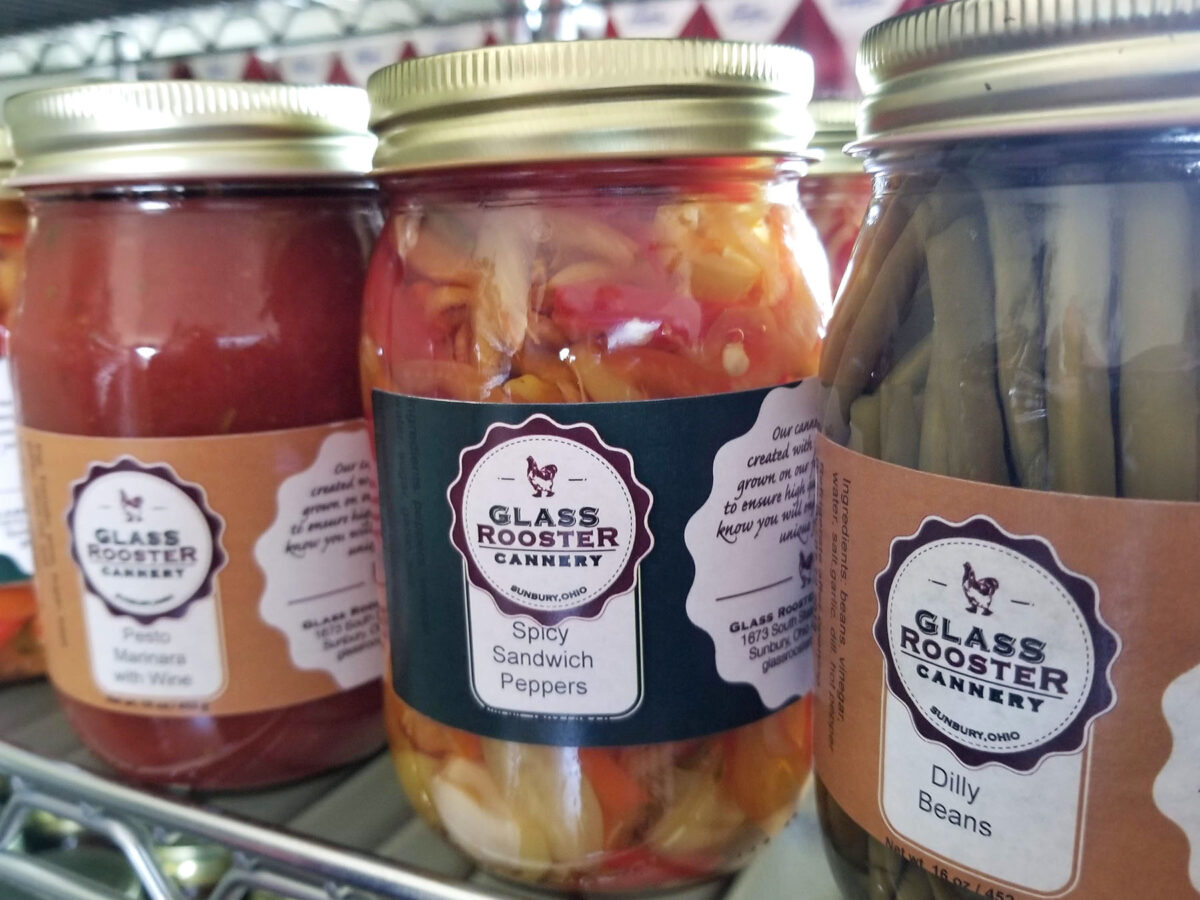The Challenge
Producers and processors involved in sustainable agriculture are concerned with food waste and how to keep edible produce from heading to the compost heap. Value-added foods like jams, pickles, sauces and preserves offer not only an additional, year-round income stream for farmers, but they’re also a reliable option for making the most of each season’s bounty. Jeanine Seabrook and her team at Glass Rooster Cannery, a sustainable farm that teaches home canning in central Ohio, wanted to reduce waste, connect with their farm community through partnerships and provide processing services that generate profit for both the cannery and its farmer partners.

The Actions Taken
Seabrook was awarded two Farmer/Rancher grants between 2016 and 2023. The first grant allowed the licensed cannery to expand its capacity through the purchase of a 40-gallon steam jacket kettle and canning supplies. This investment reduced production costs, increased batch sizes and gave local farmers the opportunity to sell shelf-safe products made with their excess produce. By the end of the first season, Glass Rooster had used 12,000 pounds of produce and canned 8,000 jars of product. Eight partnering farmers received 25% of the finished product to sell at market. Building on the success of the first project, Seabrook used the second grant to further expand the cannery to include a climate-controlled holding area and additional commercial equipment. More area farmers got involved thanks to the increased capacity for produce processing, and storage and spoilage were no longer issues. By the end of the 2021 season, Glass Rooster had processed more than 30,000 pounds of farmer-provided produce.
SARE grants have helped our viability as a business and demonstrated that small businesses can make a positive impact on the environment when we develop relationships with each other for the benefit of all. We hope to inspire others to develop similar local hubs, duplicating our efforts around the state and beyond.”Jeanine Seabrook, Glass Rooster Cannery
The Impacts
These projects have been a resounding success for Glass Rooster Cannery, its community and the local farmers involved. Specific impacts include:
- Added profit: Each jar generates between $1 and $3 for the cannery and its partners, providing steady income during the off season.
- Enormous demand: The projects were so successful that Glass Rooster had to turn away potential partners, creating a future opportunity for additional expansion.
- Waste diversion: As a result of SARE funding, Glass Rooster has been able to divert thousands of pounds of excess produce from landfills and compost piles and turn it into pickles, sauces and other goods enjoyed by the surrounding community.
Learn more: Listen to Seabrook share the story of her cannery and SARE grants.
